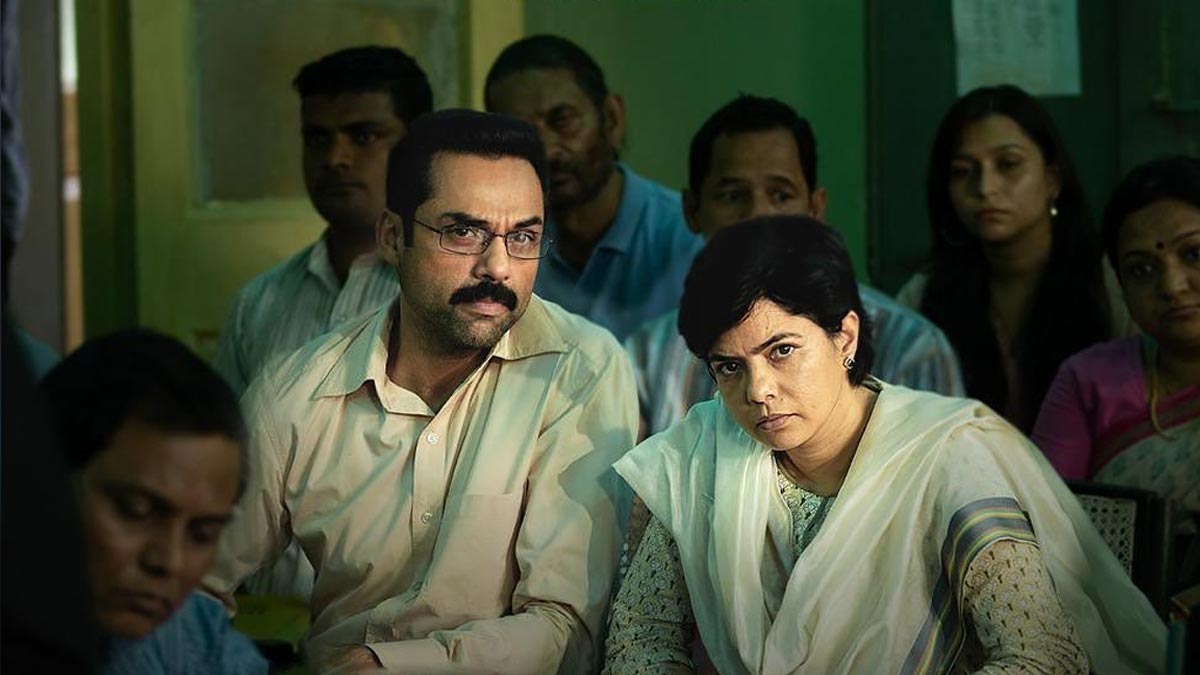
The trailer of the upcoming Netflix limited series, Trial By Fire, was unveiled on January 3, 2023. Directed by Prashant Nair and Randeep Jha, the series stars Abhay Deol and Rajshri Deshpande in the lead along with Rajesh Tailang, Ashish Vidyarthi, Anupam Kher, Ratna Pathak, Shilpa Shukla, and Shardul Bharadwaj in pivotal roles. Trial By Fire is all set to premiere on the streaming giant on January 13, 2023.
“Possibly the hardest role I’ve ever had to portray. I’ve done true stories before but this one has to be the most tragic. A fire that left a trail of tragedies in its wake. Tragedies Neelam and Shekhar Krishnamoorthy had to deal with over the two-plus decades. Follow their journey in Trial By Fire,” wrote Deol while sharing the poster of the film on social media.
View this post on Instagram
Based on the 1997 tragedy where a fire took over the Uphaar Cinema in Delhi, Trial By Fire is inspired by the bestseller book Trial by Fire: The Tragic Tale of the Uphaar Fire Tragedy. Deol and Despande play the roles of Neelam and Shekhar Krishnamoorthy, the couple who lost their two children to the tragedy and fought a long legal battle for justice for over two decades, who are also the author of the book.
Don't Miss: A Love Letter To Tabu: The Enduring Magic She Brings To Her Characters
Here’s all you need to know about the fateful day of the tragic fire incident, the long legal battle it fought for over two decades, and the conviction.
Back on June 13, 1997, a fire broke out during the 3 pm screening of the film Border at Delhi’s posh movie theatre- Uphaar Cinema in Green Park. Reportedly, 59 people died of asphyxiation after being trapped inside and as many as 103 were seriously injured due to stampede and suffocation.
In the aftermath of the tragedy, two legal battles began- civil as well as criminal. The cases were initiated by Neelam and Shekhar in demand of compensation and most importantly justice for their two children. However, during the process, their advocate K.T.S. Tulsi suggested a collective legal battle by bringing together other victims’ families to form an association. This led to the formation of the Association for Victims of Uphaar Tragedy (AVUT) which fought for compensation and justice from Ansal Theatre and Clubotels Limited (ATCL) group, the Delhi Vidyut Board (DVP), the Municipal Corporation of Delhi (MCD), and the Delhi Police.
In a landmark judgment, the first legal outcome came in 2003 when the Delhi High Court awarded ₹18 lakh each as compensation to adult victims, ₹15 lakh each to families of the children who died, and ₹1 lakh each to the 103 injured which was supposed to be paid by the abovementioned parties.
View this post on Instagram
Don't Miss: Ishaan Khatter: From Beyond The Clouds To A Suitable Boy, He Is Here To Stay
Further, the High Court directed the Ansals to pay ₹2.5 crore to set up a trauma centre which has now been set up as the AIIMS Jai Prakash Narayan Apex Trauma Centre in Delhi’s Safdarjung Enclave.
However, the Ansals immediately appealed that they were unable to pay such a hefty amount and the Supreme Court in 2011 reduced the amount to ₹15 lakh for adults, and ₹7.5 lakh for children. But, as per Neelam and Shekhar, the civil battle was never about monetary compensation. The real battle was in the criminal case filed against them.
The criminal suit against the Ansals took 24 years to convict them. Meanwhile, the Delhi Police handed over the case to the CBI who granted the accused bail within two weeks; the public prosecutor withdrew from the case without any prior notice on health grounds; evidences were tampered with; and several judges recused themselves from the case.
Though the AVUT filed a petition in the Delhi High Court regarding the delays in the case and the High Court setting a December 2002 deadline for the trial completion, the case went on till 2007. Only 12 people were convicted after a decade, four of which died during the 10-year trial and the High Court upheld the conviction in 2008 after 26 hearings. The Ansals who were unable to furnish a ₹3 crore compensation in the early 2000s could pay ₹30 crore each compensation for a year of staying out of jail in 2015.
Finally, after several appeals from Ansals, and 96 court hearings, the Ansals were convicted to seven years in prison in November 2021.
Also watch this video
Herzindagi video
Our aim is to provide accurate, safe and expert verified information through our articles and social media handles. The remedies, advice and tips mentioned here are for general information only. Please consult your expert before trying any kind of health, beauty, life hacks or astrology related tips. For any feedback or complaint, contact us at compliant_gro@jagrannewmedia.com.